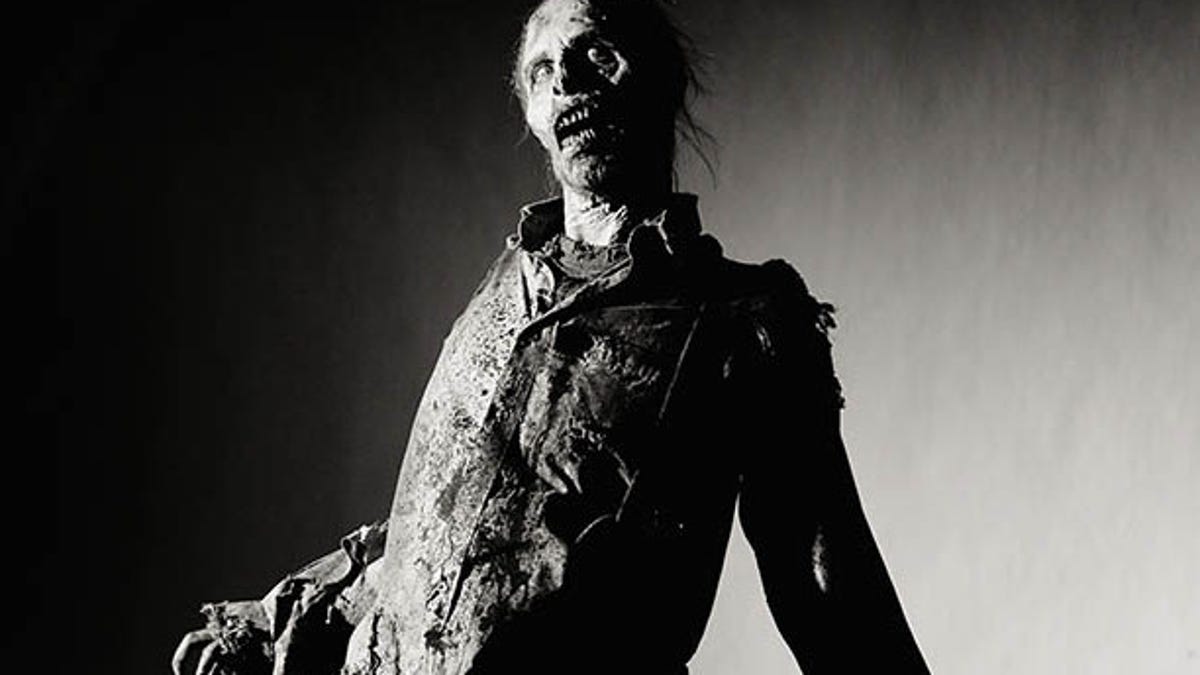'The Walking Dead' nails how a 'zombie virus' could spread
For some fun, researchers at Argonne National Laboratory run a computer model to see how quickly Chicago residents would join the legions of undead.

A walker designed from "The Walking Dead."
In the first season of the hit TV show "The Walking Dead," oft-conflicted hero Rick Grimes wakes up in an abandoned hospital 59 days after the outbreak of a zombie-fying virus in Atlanta.
Now a computer model created by Argonne National Laboratory shows that fictional timeline for the unfolding of an undead apocalypse might be just about dead-on.
To have a little fun for Halloween, Argonne researchers who normally work on building mathematical models simulating the spread of real diseases like Ebola and MRSA tried to calculate how vulnerable their home city of Chicago would be to a zombie apocalypse.
You can see how it goes down in the short video below, which shows that it would only take 60 days for 2 million people to turn into roaming zombies or "walkers," with another half million as totally dead, inanimate zombies. (To be clear, we're talking about slow-moving zombies a la the AMC hit show, none of that "World War Z" Olympic athlete zombie nonsense.)
That leaves no living humans in Chicago to wake up in a hospital bed and slowly round-up a ragtag band of survivors. But it's just a computer model, so perhaps it doesn't account for the Windy City's version of Rick Grimes.
Normally the researchers run the models hundreds of times with different variables. For example, in this case, it might be training populations to kill zombies before an outbreak strikes or better communication from city officials about how to deal with zombies.
Lead researcher Chick Macal says on the lab's YouTube feed that the models suggest a combination of approaches offers the best intervention strategy.
"This offers great promise for countering the zombie apocalypse in Chicago," Macal said.
Awesome, but as we've learned from Rick and company, it's not just the zombies we need to fear should a totally fictional virus decimate the population. I mean, that Negan guy is even creepy in Legos.

